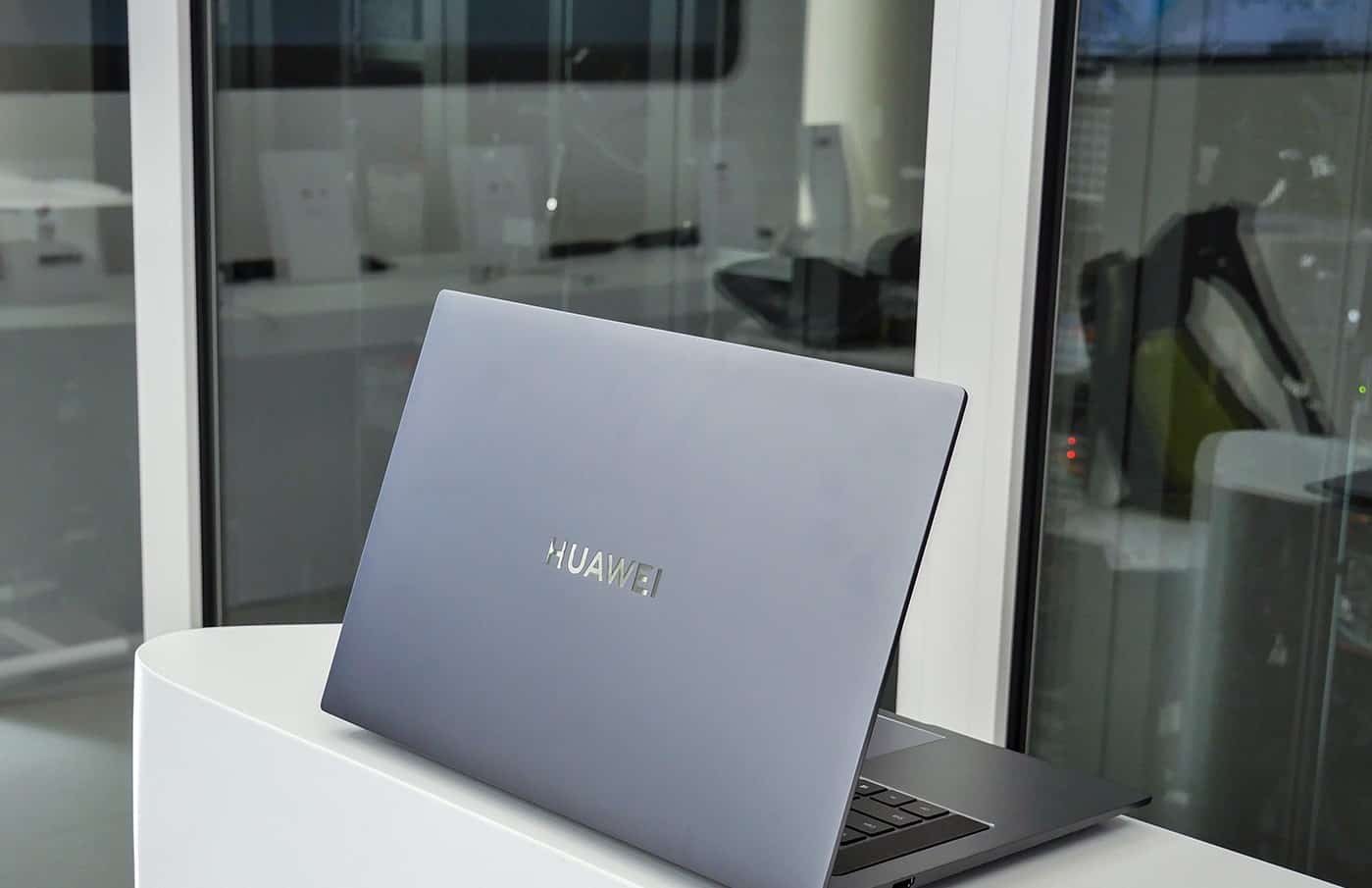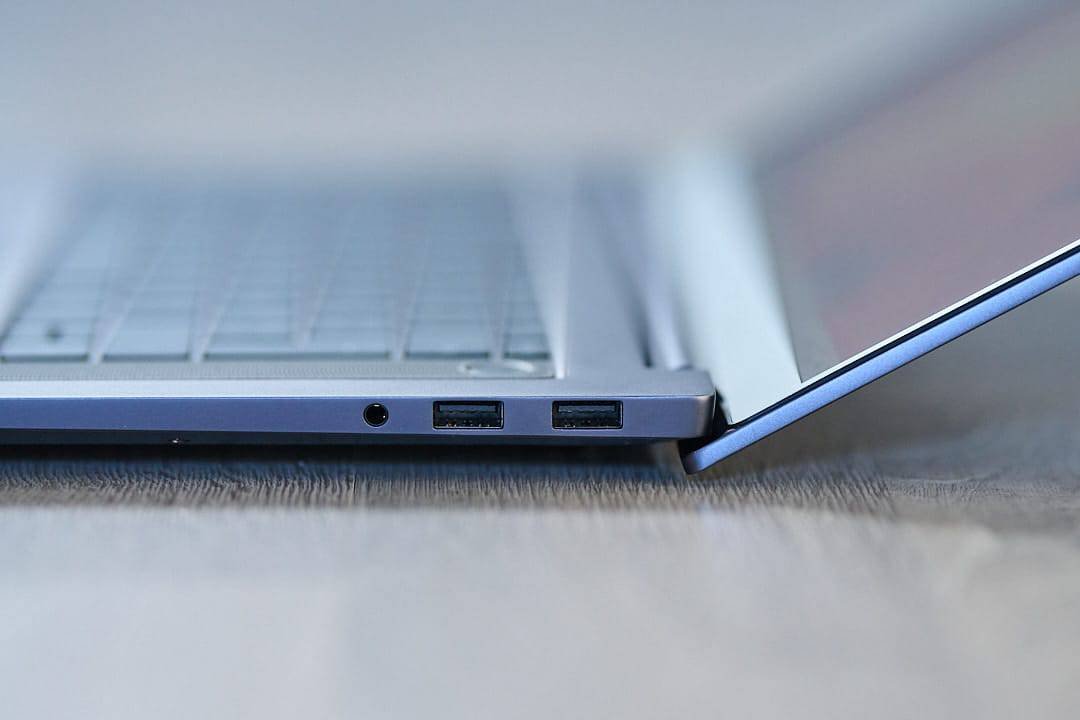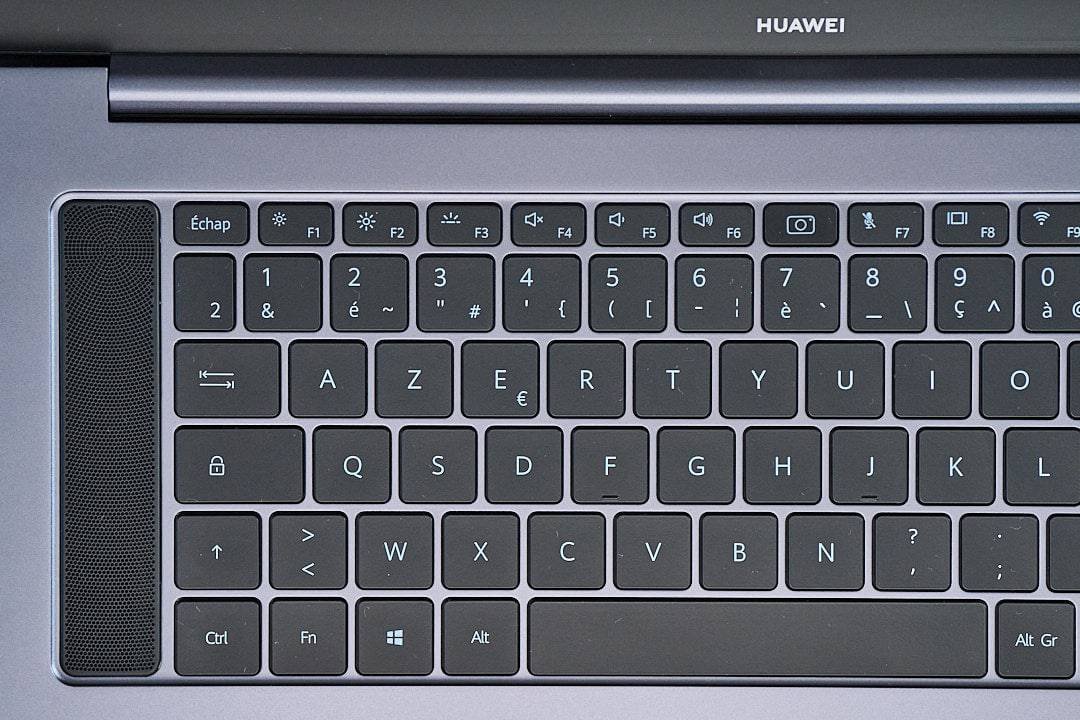Huawei completes its range with a new ultrabook, the Matebook D16. On the program, the ingredients that made the brand’s success, in particular an aluminum frame with a meticulous finish and an elegant look. Without forgetting, a price for the less aggressive well below the competition. What makes this Matebook D 16 a future must-have? Without a doubt, as we will see during this test of Huawei’s new 16-inch ultrabook.
Spring is also a time of renewal for laptops. After the MateBook D16, Huawei lifts the veil on the 2021 version of its MateBook X Pro. The brand’s high-end ultrabook is positioned as an alternative to the Dell XPS 13, Lenovo Yoga, or even, why not, to the MacBook Pro 13 Apple M1.
Today, we compare the same brand with a nice look, a powerful processor, and a good screen. Check out Huawei Matebook D16 vs Huawei MateBook X Pro.




Pros and Cons
| Huawei Matebook D16 | Huawei MateBook X Pro |
| Aluminum frame, sober look | Comfortable keyboard and touchpad |
| WiFi 6 (AX) | Beautiful emerald green color |
| Varied connectivity | Excellent brightness (585 nits) |
| Lack of dedicated graphics card | 720p nostril-exposing webcam |
| 720p nostril-exposing webcam | No SD card reader |
General Info
| Huawei Matebook D16 | Huawei MateBook X Pro | |
 |  | |
| $ | CHECK PRICE | CHECK PRICE |
| Brand | Huawei | Huawei |
| Model | Matebook D16 | Matebook X Pro |
| Weight | 1.7 kg | 1.35 kg |
| OS | Windows 10 Family 64-bit | Windows 10 Family 64-bit |
| Display | IPS | UHD |
| Dimensions | 16.1 Inches | 13.9 Inches |
| Type | Laptop | Laptop |
| Colors | Slate Grey | – |
Except for the rather imposing Huawei logo (80×14 mm), it isn’t easy to be soberer in terms of look. The Matebook D16 sports a nice dark gray color (Space Gray) that goes everywhere. Depending on the lighting, a small purple/magenta cast may be visible.
The aluminum chassis is also an asset of this Huawei ultrabook, both in perceived quality and finish. It offers good rigidity and seems ready to face a nomadic life without fear.
Access to the components is easy. Remove the ten Torx screws. The SSD is upgradable. Conversely, the RAM is welded together, so it is impossible to make it evolve. However, with 16 GB present natively, it should put the interest into perspective.


The MateBook X Pro 2021 comes in two colors. A classic space gray and more original emerald green but discreet and elegant. Note that depending on the lighting and the direction of the light, the green will seem to draw more towards the blue or, conversely, will be very deep, almost black.
Inside, we find the same color, including on the touchpad even if the latter appears slightly lighter, for a successful style effect. Style, the screen is also not lacking with its fragile borders (5 mm). And if the lower upright is a little thicker (10 mm), it remains very discreet, helped by the glass panel present, which provides an edge-to-edge effect that is most aesthetically pleasing.
In terms of finish, as often on Huawei ultrabooks, no complaints. The aluminum frame displays excellent rigidity, both open and closed.
Premium positioning requires, the underside of the chassis is also in tinted aluminum in the same color. It is possible to dismantle it, but the operation is not the easiest, and above all, no interest apart from replacing the SSD or cleaning the fans after a few months of use.


Display
| Huawei Matebook D16 | Huawei MateBook X Pro | |
| Display Type | FHD IPS | UHD 3K IPS |
| Display Size | 16.1 Inch | 13.9 Inch |
| Display Resolution | 1920 x 1080 Pixel | 3840 x 2160 Pixel |
| Display Touchscreen | No | Yes |
| Display Features | Full HD LED | Ultra HD 3K LED |
| Display | Anti-Reflection | Brilliant |
| Dimension | 369 x 234 x 18.4 mm | 304 x 217 x 14.6 mm |
Huawei Matebook D16
While the market revolves around a 15.6 or 17-inch laptop, Huawei has opted for a 16-inch screen diagonal, which is much rarer. The fact that Apple has a MacBook Pro 16 in its catalog is undoubtedly a pure coincidence. Let’s go over this detail. It at least makes it possible to stand out from the competition and offer a way out for people who can’t choose between the (relative) compactness of a 15-inch and the comfort of a 17-inch (trans) laptop. On this point, the Matebook D16 offers the bonus of being quite light (1.7 Kg).
If Huawei has chosen an unusual diagonal, this is not the case for the definition, Full HD, of the most classic. And if on a diagonal of 13 or 14 inches, this surplus of pixels is appreciable but not essential, on a diagonal of 16 inches, a well-defined panel would make sense (the pixels being much more visible). The explanation is undoubted to be found on the budgetary side with a desire to remain on an aggressive tariff. Some will predict that as long as you have not tasted the finesse of a UHD (or even QHD) panel, it is difficult, if not impossible, to perceive its interest. And therefore to be prepared to spend more for such a feature.
In addition to its borderless appearance, the IPS panel completely covers the sRGB space and offers a maximum brightness of 352 cd / m2. The contrast ratio is 1426: 1—honorable figures for a laptop marketed for less than 1200 USD. Good point, the hinges allow an opening of about 160 °. Convenient to put them

Do not look for the webcam in its usual location (in the upper upright of the panel). Like the other laptops of the brand, it is integrated into the keyboard, between the F6 and F7 keys. The disadvantage, the angle of the camera at a low angle is not the most flattering. The advantage is that there is no fear of privacy when the camera is “stowed.”
Huawei MateBook X Pro
Besides its design, the screen is the other strong point of this MateBook X Pro. Because of its 3: 2 format, on the one hand, thanks to its 3K definition, which, associated with a glass surface, allows you to enjoy excellent display finesse. Some will argue that such a definition on such a small diagonal is unnecessary. However, this is partly true after using such a screen (UHD), difficult, if not impossible, to go back (with a Full HD panel).
By default, Windows opts for a scaling of 200% or a useful display area equivalent to 1500×1000 px. A setting that will appeal to the greatest number. However, we advise you to test a custom scaling at 160% (1875×1250 px equivalent) if you ever find the texts too “big.”
Like many of the brand’s laptops, the panel (JDI LPM139M422A) is tactile but not convertible (into a tablet). A nice little extra every day to click on a link, navigate between photos, or zoom in Photoshop / Lightroom, for example.
Photographers, and other users sensitive to colorimetry, will appreciate the near-complete coverage of the sRGB space (99% – 70% Adobe RGB) and the contrast ratio of 1873: 1. On the other hand, at 7000K, the white point is a little beyond the 6500K expected. No problem with the DeltaE, at 1.8 after characterization. Finally, the last asset, and not the least, a maximum brightness of 585 cd / m2! What to consider using the MateBook X Pro outdoors.

For the webcam, Huawei remains faithful to the integration in a key of the keyboard. This is convenient for confidentiality, the lens being blind in the closed position. On the other hand, the angle against the plunge will not put you to your advantage in use. For occasional use, it is possible to adapt to it. For more frequent use, it is better to opt for another model or a Logitech USB external webcam, for example. The opportunity to enjoy a better quality image on the way.
Specification
| Huawei Matebook D16 | Huawei MateBook X Pro | |
| Processor | AMD Ryzen 5 4600H Renoir | Intel Core i7-1165G7 Tiger Lake |
| Graphics | AMD Radeon RX Vega 6 | Intel Iris Xe |
| RAM | 16 GB DDR4 RAM | 16 GB LPDDR4X RAM |
| Storage | 512 GB SSD | 1 TB SSD |
Performance
| Huawei Matebook D16 | Huawei MateBook X Pro | ||
| Clockspeed | 3.0 GHz | 2.8 GHz | |
| Graphic Processor | AMD Radeon RX Vega 6 | Intel Iris Xe | |
| Processor | RX Vega 6 | Intel Iris Xe |
Huawei Matebook D16
The Matebook is based on an AMD 4000 series platform. Question of budget, it will be necessary to be “satisfied” with a Ryzen 5 4600H. A processor is nevertheless swift thanks to its 6 cores and its TDP of 45W—something to suit various uses. Of course, office automation or web browsing and photo editing or even a little video editing (occasional). For this use, and more broadly for 3D-based tasks, the absence of a dedicated graphics card can be a brake. The Vega chip integrated into the processor being limited in terms of GPU acceleration. So with our Capture One test, the Dell XPS 15, yet equipped with an equivalent processor (or even slightly lower in terms of raw performance) but associated with a small graphics card (GeForce GTX 1650 Ti), is much faster.



Huawei MateBook X Pro
Like many ultrabooks, Huawei has chosen a Tiger Lake platform for its MateBook X Pro. The latter therefore embeds, depending on the versions, a Core i5-1135G7 or a Core i7-1165G7. Two low-power Quad Core processors.
However, unlike some competitors, Huawei has obviously chosen to prioritize user comfort by limiting the processor TDP to 16W (against 28W on a Dell XPS 13 or a Razer Book 13 for example).
This results in a more discreet ultrabook (38 dBA most often, 41 dBA at its strongest) and lower temperatures (the CPU is on average at 75 ° C). On the other side of the coin, to obtain such results, it is necessary to accept performance in decline.



Multimedia
| Huawei Matebook D16 | Huawei MateBook X Pro | ||
| Web-cam | Yes | Yes | |
| Security | Fingerprint reader | Fingerprint reader | |
| Speakers | 2 Speakers 2w | 4 Speakers | |
| Microphone Jack | 3.5 mm | 3.5 mm | |
| Wireless Lan | Yes | Yes | |
| Bluetooth | Yes | Yes | |
| Windows Hello | Fingerprint reader | Fingerprint reader | |
| Backlit Keyboard | Yes | Yes |
Huawei Matebook D16
Unlike Dell or Apple, Huawei has not given in to USB-C fashion at all. The Matebook, therefore, has in addition to the two UBC-C ports (one of which will be occupied for the mains power supply) present on the left of the chassis of two other USB-A ports. All of the 3.2 Gen 1 standard. An HDMI output (the first USB-C port is also DisplayPort Alt compatible) and a microphone jack complete the connection.


You can’t help but notice the speakers on either side of the keyboard. An integration not the most successful from an aesthetic point of view. However, this allows you to have live sound and thus enjoy a better rendering. However, the Matebook D16’s audio system struggles to stand out from the competition. The sound is rather well detailed and the power sufficient for a laptop, but the overall rendering would benefit from having more punchy bass and midrange.

Huawei MateBook X Pro
With barely 15 mm thick, it isn’t easy to integrate a variety of connections. Therefore, the MateBook X Pro relies on two Thunderbolt 4 / USB-C ports (including one dedicated to mains power).
Some people will undoubtedly appreciate the presence of a USB-A port but will regret the absence of an HDMI output. To do this, remember to take the supplied adapter. The latter offers as a bonus a VGA output, a USB-A, and a USB-C port (supports charging but no video stream).



Discreetly integrated on either side of the keyboard, the speakers produce a spatialization, to say the least, astonishing and undoubtedly the most impressive that we have come across in recent months on an ultrabook. And this even with surround sound disabled in the Nahimic utility. The power is also there, but beyond 50% of the volume, the distortions become too present. As for rendering, once again, this MateBook X Pro is doing well. We blame it for a slight lack of warmth and too timid bass, but it is still very honorable for a 13/14 inch ultrabook.

Battery
| Huawei Matebook D16 | Huawei MateBook X Pro | |
| Battery Type | Lithium Polymer | Lithium Polymer |
| Battery Life | 11 Hrs | 12 Hrs |
| Power | 56W | 56 W |
Huawei Matebook D16
With an average battery life of 9.45 hours (active WiFi, brightness at 140 cd / m2), the Matebook D16 does not have to be ashamed of other ultrabooks yet equipped with less efficient low-power processors. It benefits as a bonus of the fast charge which allows gaining about 40% in 30 minutes.
The 65W USB-C charger is rather compact (60x60x30mm – 200g). The cable length is limited (1.8m).
Huawei MateBook X Pro
If the 3K screen is synonymous with visual comfort, it implies higher consumption which impacts autonomy. Plan on an average of 8 hours in Web browsing (WiFi active, brightness at 140 cd / m2). A result comparable to that of its main competitors, the Dell XPS 13 or the Razer Book 13 tested recently. It is, therefore, better to settle for a Full HD panel if autonomy is one of your first criteria of choice.
In case of use mainly connected to the mains, it is recommended to limit the battery charge to 70% (or even 90%) to avoid its premature wear. To do this, go to PC Manager, then click on Settings (the 3 bars at the top right) and go to the System tab.
The 65W USB-C charger is compact (60x60x30 mm – 200g). The cable length is however limited (1.8m).
Conclusion!
Huawei Matebook D16
Huawei offers a mature laptop with excellent value for money. Aluminum chassis with a sober and neat finish, sRGB borderless screen, a high-performance processor associated with 16 GB of RAM without forgetting a comfortable keyboard, and now WiFi 6 (AX). All at 1000 USD, or even a little less in future promotions. Enough to make it a safe bet and undoubtedly one of the most attractive 15-17 inch ultrabooks of the moment (spring 2021) for those looking for a versatile laptop.
However, keep in mind that in the absence of a dedicated graphics card, and however good its processor is, this can impact its efficiency in the medium term. More and more programs relying on the graphics card for certain tasks (like Photoshop and Lightroom with their Super Resolution functionality). And yes, a graphics card is not just for gaming.
Huawei MateBook X Pro
The MateBook X Pro is a high-end ultrabook that can count on its superb 3: 2 High Definition screen and the impeccable finishes of its aluminum chassis. Emerald green livery elegantly sets itself apart from the competition and will appeal to anyone bored of gray. Unfortunately, for the moment. The haptic touchpad and the keyboard provide an experience that meets expectations for such a premium ultrabook (we still blame it for its almost invisible backlighting in use).
Still, autonomy will undoubtedly be judged a little too fair by nomads (8 hours on average). As for performance, if this is not the primary vocation of a 1.3 Kg ultrabook, they are lagging behind the competition yet equipped with the same processors.


